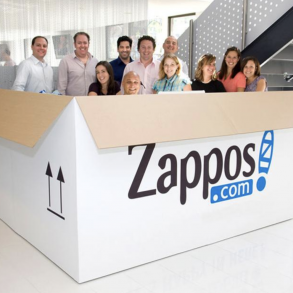By Terry Collins for Enlivening Edge Magazine
Every semester I have a conversation with my freshman students at the University of Houston about why they should not waste time and money on a college education—if that is not their own desire, but is what someone else wants for them. There is no shame in working a trade such as plumbing, electrician, hair stylist, and others. However, there are other reasons why these careers should be considered, and it has to do with the future of work.
The current political climate is certainly disruptive, and who knows what it will bring. However, according to Art Bilger of WorkingNation, it doesn’t matter who is President or in Congress, it is still very likely that 47% of jobs will be eliminated over the next 25 years due to technology and globalization. This will include white-collar jobs and all other industries.
McKinsey tells us the work activities most highly prone to becoming automated by current technology are predictable physical work, data processing, and data collection, while the least susceptible are managing others, applying expertise, and stakeholder interactions. The optimal sectors at this time are educational services, management, professional, and information because these sectors require more expertise in planning, creativity, and in making decisions. Accommodations and food service, manufacturing and agriculture may not be the best work choices for humans because of technical feasibility.
 Actually, the current young and upcoming workers have already started to embrace a new way to work that will benefit them now and in the future. The Millennials have grown up in a time of job uncertainty and have developed entrepreneurial skills in ways that make work more self-fulfilling—by finding ways to make their passions pay and help others as well. Many are more flexible, great at collaborating, multi-skilled and better at multi-tasking than previous generations in general.
Actually, the current young and upcoming workers have already started to embrace a new way to work that will benefit them now and in the future. The Millennials have grown up in a time of job uncertainty and have developed entrepreneurial skills in ways that make work more self-fulfilling—by finding ways to make their passions pay and help others as well. Many are more flexible, great at collaborating, multi-skilled and better at multi-tasking than previous generations in general.
Retraining, apprenticeships, and innovative and creative thinking will be beneficial in this situation of lost jobs—but what else might be a possibility? Every time I post something that supports the concept of the Universal Basic Income on Facebook, there is usually absolutely no response! Many people just do not want to go there in their thinking, but it is working in some European countries, and many do not know that this is already happening in Alaska.
Recently, a group of futurists published advice for navigating the future of work. I’ve grouped some of the skills advised which seem to fit nicely into the fundamental assumptions of Teal worldviews and organizations, and I’ve made a few additions and adjustments:
Self-Management
- Be a leader in order to model responsibility and accountability
- Be able to hold many perspectives and multi-disciplines in order to facilitate the power of the collective intelligence
- Have the attitude of curiosity with positive intent
Wholeness
- Reinvent yourself, keeping in mind strengths and opportunities
- Stay healthy in honoring all parts of us
- Be a lifelong learner, as we have never arrived
Evolutionary Purpose
- Create the future in a non-controlling way
- Be someone who is hard to automate because we are responding to our personal calling
- Challenge conventions so that that we can respond to the collective purpose
All that is good advice, but I would also add, stay optimistic. The one thing we can count on is that a change will happen. Do not allow your brain to be hijacked by pessimism so that you cannot see the whole picture of reality. There is much to be optimistic about in considering the future of work when you ponder what is happening in renewable energy, vertical farming, 3D printing and medical technology. It looks like the next blue collar job is going to be coding!
It’s an exciting time with unknown fresh possibilities we cannot anticipate as they have not been revealed to us yet. The best to you and all you do, in work and all things now and in the future.

Terry Collins is an Integral Futurist, Educator and Philosopher. She is a steward to www.integralfutures.com and can be reached at [email protected].





As a “retired” vocational counselor I think your assessment and advice to many working age people is excellent. However, I remain puzzled and trouble as to a viable solution and solid career advice for the (bottom) 20% of the population who have limited cognitive abilities, who are never going to have the capability to develop leadership skills and for whom education beyond the basics is not feasible or appropriate. This is the workforce that once performed manual labor in the steel mills, pumped gas, picked up the garbage, worked in the mines. Those jobs are gone, they are not coming back as you have so clearly stated. What of them?
Hi Diana! Yes, that’s a good question and if they can not be retrained than perhaps they will be receiving the Universal Basic Income I talk about in the article. Do you have any thoughts on this?
I believe all human beings have a desire to learn and evolve, although at different speeds and to a different image of their future selves. All want to escape daily drudgery at some point and attain higher levels of meaning and consciousness, even those of us who may have physical or mental limitations. Man is not a machine and does not do well in prolonged repetitive work; man craves variety to varying degrees, again depending on the individual. Menial work will continue to be replaced with automation and robotics, with artificial intelligence playing a larger role in future. The garbage truck that once had one or two up front in the cab and two riding on the back hauling garbage, now has one driver who also operates a robotic arm that lifts the garbage bin and dumps the contents in the truck. Those haulers may now be working the line at the garbage processing plant, sorting recyclables and organic waste from other non-compostable waste – work that is of higher value and also requires greater judgement. Others may decide to leave this line of work, and they should have access to retraining programs that will allow them to contribute to society in other meaningful ways. The garbage truck of tomorrow may well be driverless, autonomous and fully automated, able to do some of the sorting and processing on board. But, there will always be work for the so-called “bottom 20% of the population” as long as they are valued and supported by society so they can continue to contribute.
Commenting on one of Diana’s points and Terry’s response… One who receives something (income) for nothing will not value or appreciate it. I don’t know the model for Universal Basic Income, but people need work or service; a place to contribute and feel valued and appreciated. The reciprocity has to go both ways.